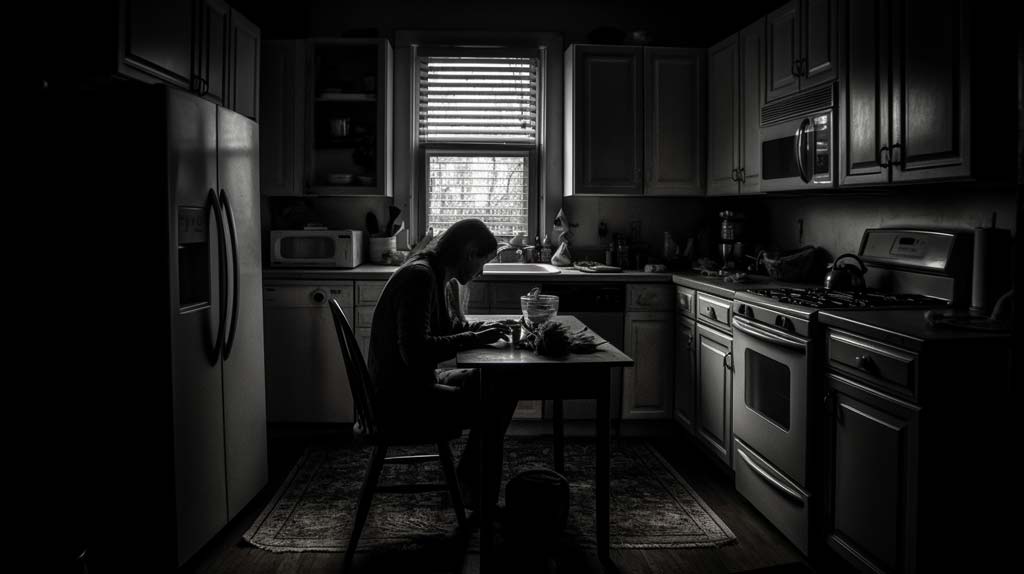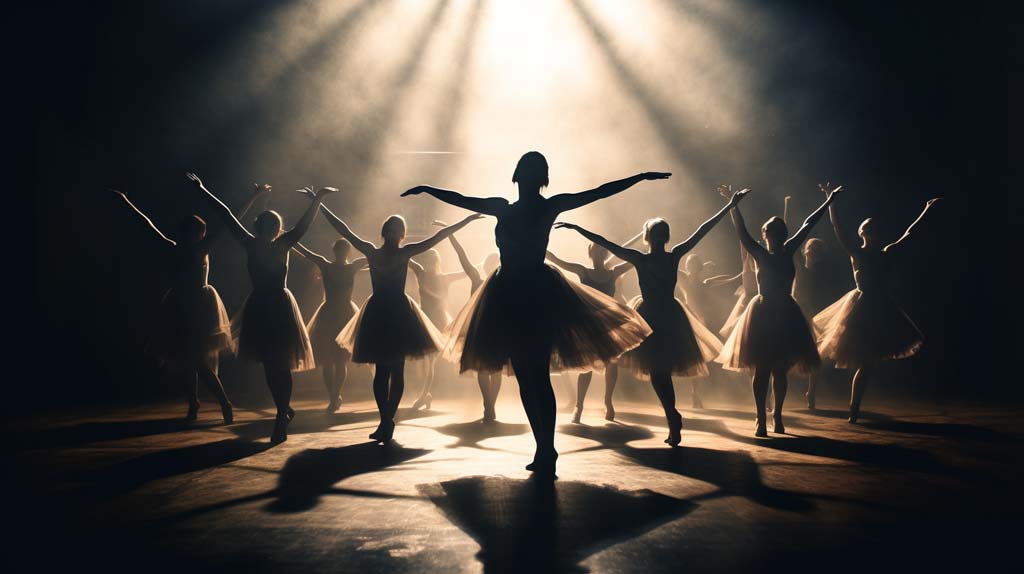Since I penned the blog post ‘Choking or Overwhelming: A Learning Struggle‘, I’ve grappled with persistent fear and stress. Despite my understanding of the overwhelming feelings that led to a choking sensation, I find myself returning to the same point of struggle each time I venture into a new aspect of website building.
The fear of failure, the fear of not completing what I started, and the fear of not being able to create what I envisioned all conspire to form a formidable barrier.
This fear is not an abstract concept; it’s a natural force that can hinder or enhance us. I’ve experienced this duality of fear in the world of sports. As an academy-level football player, I was an average performer during training. Still, on match days, I was among the best. However, when I switched to athletics, the script flipped. Despite showing promise in training, the fear and anxiety of race day and the pressure of expectations led to underperformance.
Fear is a primal emotion deeply ingrained in our psyche. It has been our constant companion since dawn, keeping us safe from harm. But when fear takes root in our minds, it can limit our ability to enjoy life and reach our full potential. Much like an unsolved mathematical equation, the fear of the unknown can lay the groundwork for anxiety and stress.
Yet, fear does not spell the end. Instead, it’s a question mark, a prompt for introspection and caution. It’s our body’s way of telling us to think things through. If we can learn to control our fear, it can become a supportive ally, guiding our actions and decisions. But to do that, we must first acknowledge its existence and understand its impact on our lives.
I want you to accompany me as I journey into the intricate dance of fear and stress. Exploring its profound impact on our lives. From personal experiences to scientific insights, I aim to shed light on how these primal emotions shape our actions, decisions, and overall well-being.

Unseen Impact of Fear and Stress on Our Daily Lives
Fear and stress, these two emotions, have a way of creeping into our lives, often unseen and unnoticed until they’ve taken root. They are born from our concerns about losing our health, wealth, and loved ones. Unfortunately, this fear can become so pervasive that it starts to control us, perturbing our minds and actions.
The fear of failure, for instance, can prevent us from trying new things or stretching ourselves beyond our comfort zones. It’s like standing at the cliff’s edge, wanting to take the leap but being held back by the fear of falling. This fear can be so powerful that it overshadows our potential for success, leaving us stuck in a state of inaction.
Similarly, the fear of the future can rob us of the joy of living in the present. It’s like being in a beautiful garden but too worried about the coming winter to enjoy the blooming flowers. This fear can make us so focused on what might happen that we forget to appreciate what is happening.
The fear of not being liked by others can also profoundly impact our lives. It can prevent us from expressing our true selves, leading us to shrink and lose our individualistic traits and personality. It’s like wearing a mask, hiding our true faces for fear of rejection.
Fear can also rear its head when we try something for the first time or encounter seemingly insurmountable obstacles. I experienced this not too long ago, which led me to write the blog post ‘Choking or Overwhelming: A Learning Struggle’. It’s like standing in front of a towering wall, feeling overwhelmed by the sheer scale of the challenge.
If left unchecked, fear can take hold of us, limiting our ability to enjoy anything resembling normality. It grows within us, just as a tree grows in the ground with sun, water, and nutrients. The more we nourish it through additional fear, the deeper its roots grow, and the more it controls us.
The unseen impact of fear and stress on our daily lives is profound. It can dictate our actions, shape our personalities, and determine our future. Understanding this impact is the first step towards reclaiming control over our lives.

The Intricate Dance of Fear, Stress, and Our Well-being
Fear and stress, primal emotions, are complex phenomena that trigger a cascade of reactions within our bodies. According to a study by Ulrich-Lai and Herman, our bodies respond to stressors by activating the autonomic nervous system (ANS) and the hypothalamic-pituitary-adrenocortical (HPA) axis. These systems work in tandem to maintain our physiological integrity, even under intense fear and stress.
The ANS, for instance, responds almost instantly to stressors, causing rapid changes in our physiological state. For example, it can increase our heart rate and blood pressure within seconds, preparing our bodies for immediate action. However, these responses are short-lived, subsiding quickly once the stressor is removed.
On the other hand, the HPA axis triggers a slower but more sustained response. It results in elevated levels of circulating glucocorticoids, hormones that help regulate our metabolism, immune response, and stress response. This hormonal mechanism ensures a prolonged reaction to fear and stress, helping us cope with longer-lasting challenges.
However, chronic activation of these stress responses can harm our health. A study by McEwen highlights that chronic stress can lead to a state of ‘allostatic overload’. This condition is where the constant need to adapt to stressors leads to wear and tear on the body and brain. It can result in elevated levels of stress hormones, increased blood pressure, and changes in personal behaviours such as poor sleep and overeating.
Moreover, a study by Feder, Nestler, and Charney suggests that our resilience to stress is not just a matter of genetics but also involves our experiences and environment. It underscores the importance of positive experiences and a supportive environment in building resilience and mitigating the harmful effects of chronic stress.
In a nutshell, fear and stress are deeply intertwined, with anxiety often triggering our stress responses. While these responses are crucial for our survival and immediate adaptation to challenges, chronic activation can lead to harmful physical and psychological effects. Therefore, understanding and managing our fear and stress responses are vital for our well-being.

Fear and Stress: The Twin Challenges of Modern Life
Fear and stress often present as unwelcome companions as we journey through life. They are the twin challenges of modern life, deeply rooted in our primal instincts yet often misunderstood.
Fear, as we’ve discussed, is not inherently wrong. It has been with us since dawn, a survival mechanism that has kept our ancestors safe from harm. It prompts us to question situations, weigh the pros and cons before acting, and ultimately keep us safe.
However, when fear takes root in our lives, it can control our existence, perturbing our minds and actions. The fear of failure, for instance, can prevent us from trying new things or pushing beyond our comfort zones. Fear of the future can rob us of the joy of living in the present. The fear of not being liked can cause us to shrink back, losing our individualistic traits and personality. And the fear of the unknown, like navigating through a dense fog, can lay a foundation of uncertainty within us.
Dr Caroline Leaf, a renowned cognitive neuroscientist, puts it succinctly:
Fear triggers ‘more than 1,400 known physical and chemical responses and activates more than thirty different hormones and neurotransmitters.’ It’s at the root of all our stress. When fear causes a chronic stress reaction in us, it actually ‘marinates’ our body in chemicals that can be harmful in large amounts. This, of course, is terribly unhealthy and threatening to our physical well-being.
But fear does not spell the end. Instead, it is a question mark, a prompt for introspection. The fear you feel is a testament to your humanity, a sign that you are a part of this vast, complex tapestry of life on Earth. It is not about being consumed by fear but about acknowledging, working with, and mastering it.
Feeling fear is not the same as being afraid. Being afraid means allowing fearful feelings to take control of you. But standing fast in the face of fear, becoming confident in and with it, is the key to overcoming it. It’s about taking one step at a time, even when the wind is against you. It’s about learning to dance with fear and stress, to use them as tools for growth and self-improvement.
Sources
- Feder, A., Nestler, E. J., & Charney, D. S. (2009). Psychobiology and molecular genetics of resilience. Nature Reviews Neuroscience, 10(6), 446–457. [Accessed 29 May 2023]
- McEwen, B. S. (2008). Central effects of stress hormones in health and disease: Understanding the protective and damaging effects of stress and stress mediators. European Journal of Pharmacology, 583(2-3), 174–185. [Accessed 29 May 2023]
- UCB, (27 May 2023), Refuse to live in fear (1). United Christian Broadcasters. [Accessed 29 May 2023]
- UCB, (28 May 2023), Refuse to live in fear (2). United Christian Broadcasters. [Accessed 29 May 2023]
- Ulrich-Lai, Y. M., & Herman, J. P. (2009). Neural regulation of endocrine and autonomic stress responses. Nature Reviews Neuroscience, 10(6), 397–409. [Accessed 29 May 2023]


